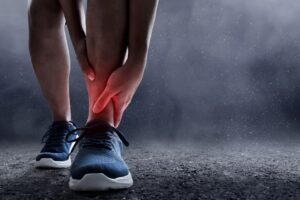 Have you ever been lying or sitting, completely inactive, when the muscles in your calf start going berserk? They get tight, maybe twitch, and can bring on nearly unbearable pain?
Have you ever been lying or sitting, completely inactive, when the muscles in your calf start going berserk? They get tight, maybe twitch, and can bring on nearly unbearable pain?
Muscle cramps, particularly in the calves, can be fairly common. They are sudden involuntary contractions (tightening) of the muscle fibres and can last anywhere from a few seconds to several minutes.
Advertisement
The pain can be mild, moderate, or intense and can arise suddenly and painfully, even during sleep.
There is often no obvious cause for the pain, but a little bit of thought may offer some insight into why it is happening. Exercise, for example, is a common trigger. This is especially true if you’ve worked out for a long time or are in the heat.
Muscles that are tired and dehydrated can easily become irritated and more likely to cramp. Deficiencies in electrolytes like magnesium and potassium can also lead to frequent cramping, preventing the muscles from fully relaxing.
Age can be another contributor to cramping, as older muscles become more sensitive to lower fluid volumes.
Most cramps will go away on their own, maybe with a little rubbing or stretching. Applying heat, like a pad or warm washcloth, can also help loosen up tight muscles.
Advertisement
You can try to avoid future leg cramps by drinking plenty of fluids and being extra mindful of drinking them before, during, and after exercise. Warming up before exercise with a slow walk or jog can help, as can making sure you stretch afterwards.
If cramping at night during sleep is an issue, stretch before bed.
Cramps can be common and very painful, but they can be prevented. When you know why they’re happening, you can take steps to limit their impact.
